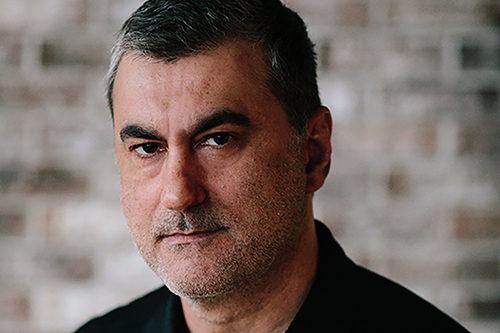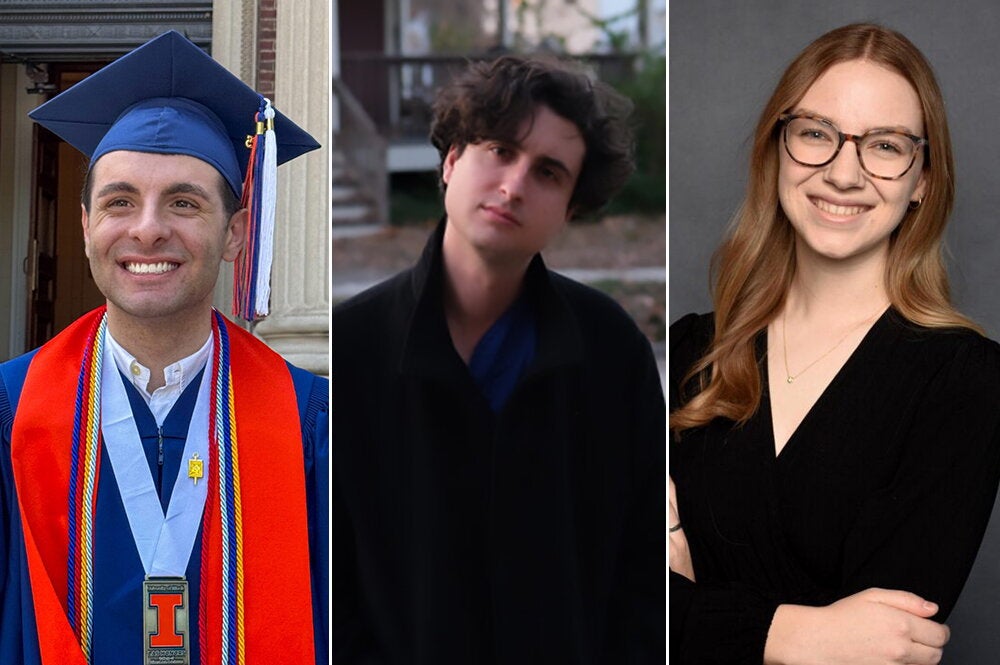

As one prominent critic put it, the novel “Lord,” by the late João Gilberto Noll, is about “the evasions of identity.” Ironically, it was the job of Edgar Garbelotto, a graduate student at Illinois, to translate the work into words that more people could understand.
Garbelotto, a graduate student in creative writing pursuing a Certification in Translation Studies at Illinois, translated “Lord” from Portuguese into English, and his work has come to light as the novel was recently reviewed by The New York Times.
“Lord” was published originally in 2004, but since Garbelotto’s translation, Noll’s 164-page novel has received widespread attention in the United States. The novel was described in the March 22, 2019, edition of the Times by critic Jamie Fisher as a “manic treatise on travel and transformation. The narrator begins very firmly in the customs line at Heathrow Airport and ends placeless, not so sure where or who he should be.”
The novel describes a Brazilian novelist who arrives in London on invitation, only to lose his way on the streets and become increasingly unhinged from his own identity. Fisher, the critic, concluded that “…for a novel guided by delirium, ‘Lord’ is remarkably suspenseful and assured.”
When asked by the U of I how a graduate student managed to translate a book reviewed in The New York Times, Garbelotto responded, “With the guidance of Joyce Tolliver, I took an independent study course with Elizabeth Lowe, one of the most prolific and successful translators of Brazilian literature into English.”
Tolliver is the current director of Illinois’ Center for Translation Studies, and Lowe is professor emerita and the center’s first director. The independent study class was titled Brazilian Literature in Translation, and Garbelotto and Lowe discussed a few authors that Garbelotto wanted to translate.
“I always had very clear in my head that I wanted to translate from my native language, Portuguese, into my second language, English, which is not the norm among translators,” he said. “I had many reasons for my choosing. Contrary to the U.S., where only 3 percent of what is published is translation, in Brazil, 60 to 70 percent of what is published is mostly translations from English, and from the U.S. more specifically. I didn’t want to be one more person doing that. Instead I wanted to promote Brazilian literature in the U.S., which is seriously under-represented.”
Garbelotto eventually chose “Lord,” whose author, João Gilberto Noll, “is a writer extremely focused on the power of language. I wanted to transmit that power into English, staying very close to the same enchantment his prose provoked in me in the original language.”
Garbelotto added, “I was not concerned with ‘Americanizing’ Noll’s prose, but instead wanted to convey the same sense of strangeness of the original prose into English.”
He sent a sample of his translation of “Lord” to Two Lines Press, which had published two previous works by Noll, “and they loved it and wanted to publish it.” Once the contract was signed, the work became collaborative, as Garbelotto had “the help of my friend and amazing writer, Kent Quaney, and my mentor, Elizabeth Lowe, and ultimately, CJ Evans, the editor at Two Lines Press.”
Garbelotto is a native Florianópolis, Brazil, but has lived in Chicago for the past 20 years. While many Illinois students take online classes in translation and interpretation, he attended classes in campus, although at present he’s working on his Capstone (research project) online.
“I can tell you that, online or in campus, the quality and dedication of the faculty is impressive,” he said. Garbelotto said that although he has studied extensively and in many different institutions, “I was pleasantly surprised with the community I found here. They root for you and want you to succeed. And they give you the tools for that.”
As for his own experience, and what the program has to offer, Garbelotto, who will receive his certificate of graduation at the School of Literatures, Cultures, and Linguistics convocation on May 11, observed, “It’s up to the student to take advantage of these tools and use for her benefit.”


